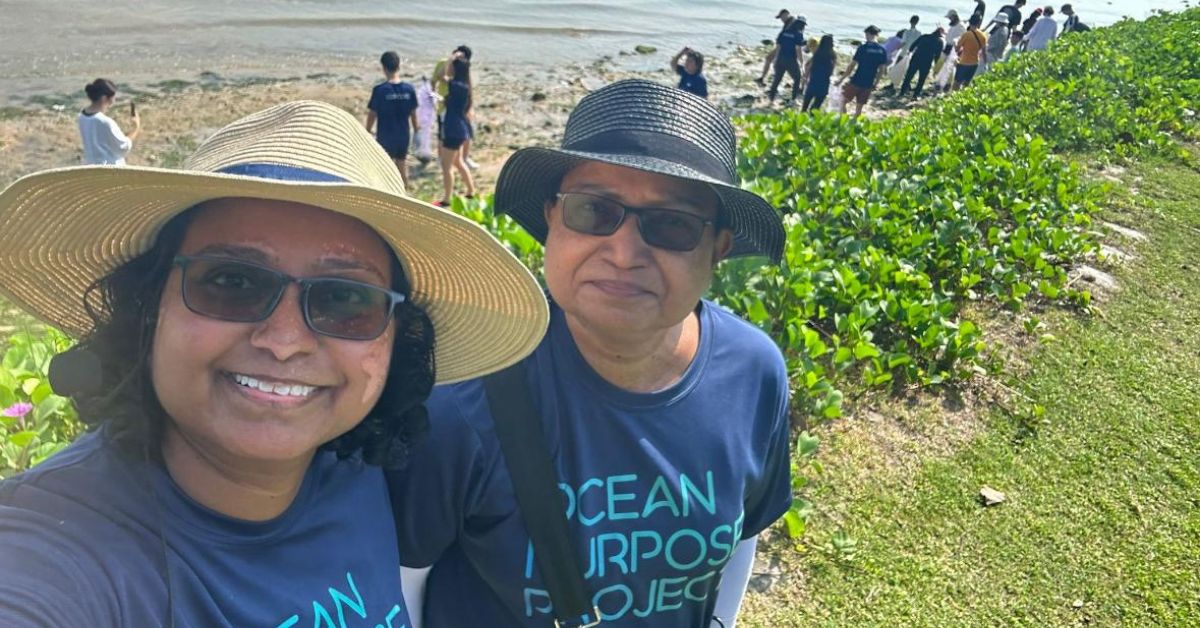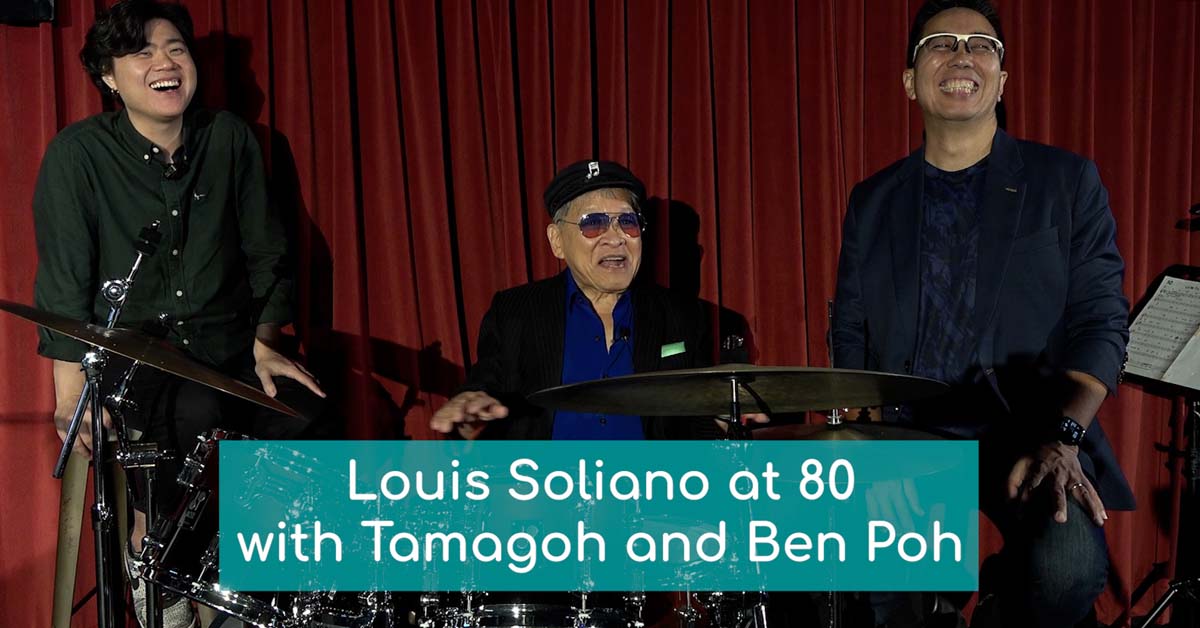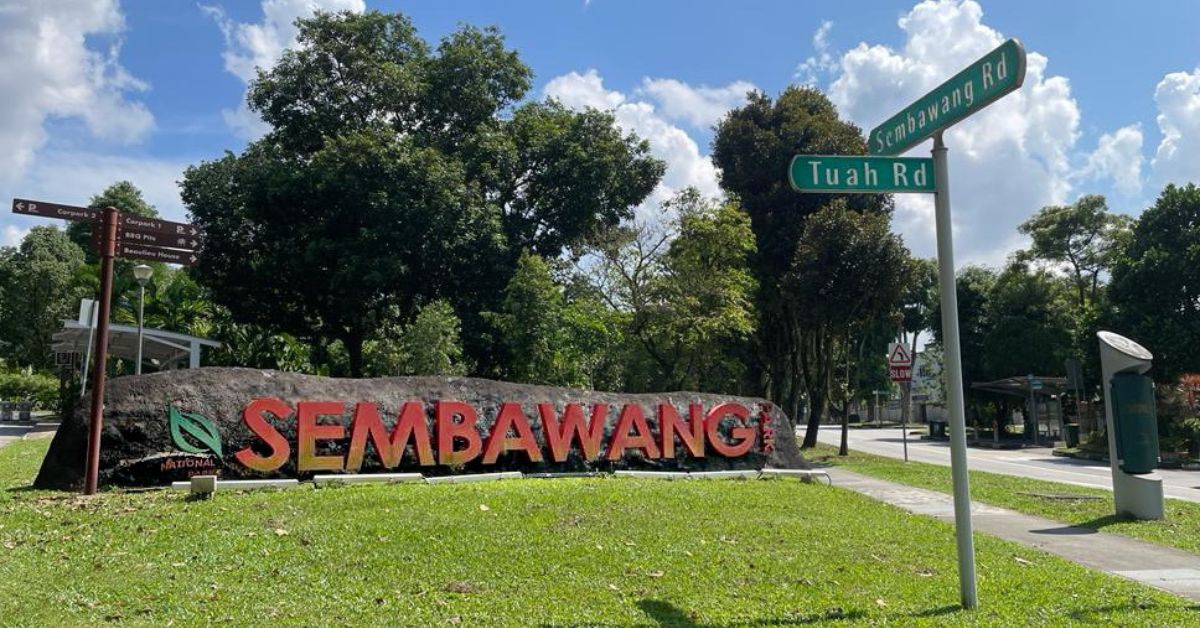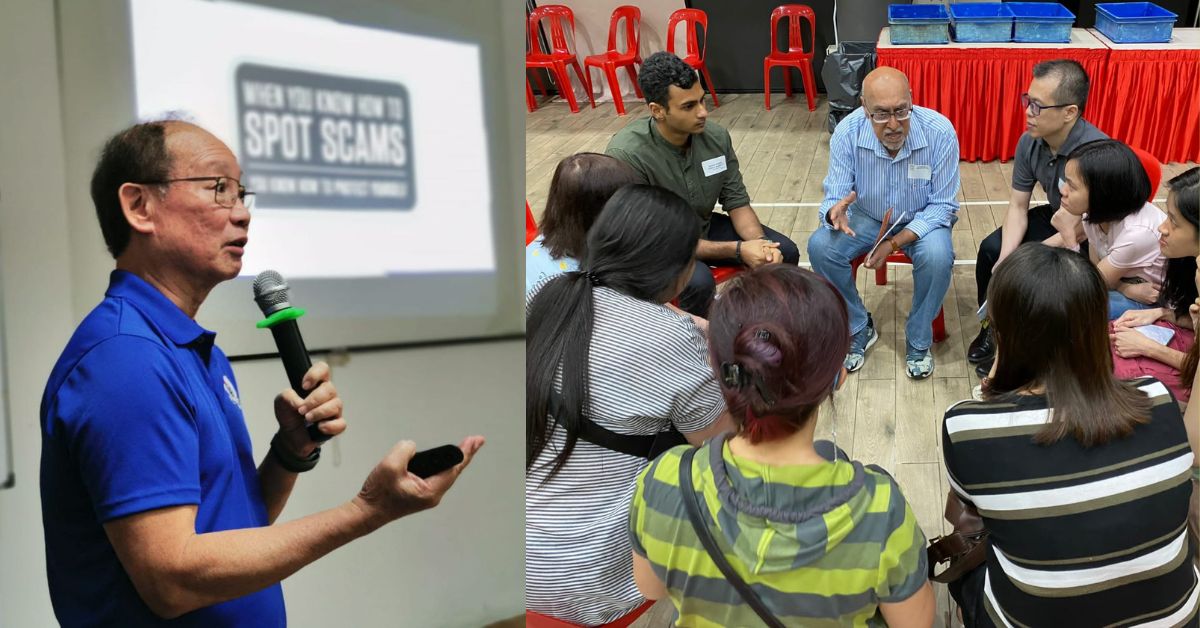
For those of us fortunate enough to have amassed ample retirement savings and settled other pressing needs like insurance or estate planning, volunteering is a great way to give back to the community.
It allows you to employ skillsets that you’ve honed for decades in meaningful ways. In some cases, you even get to pass your knowledge on to the next generation. These small actions can compound and create an outsized impact on the lives of others.
On the flip side, there are tangible benefits for silver volunteers too. You get to keep your minds and bodies active while socialising and making new friends.
So why isn’t everyone volunteering? There are plenty of reasons.
Some people just don’t have it in them. Those that do can burn out when they take on too much, too soon. And then there’s bureaucratic red tape in both governmental and non-governmental organisations, often leading to undue friction.
Advertisement
Two veteran silver volunteers give SilverStreak the lowdown on their experiences in Singapore’s volunteering ecosystem.
Put yourself first
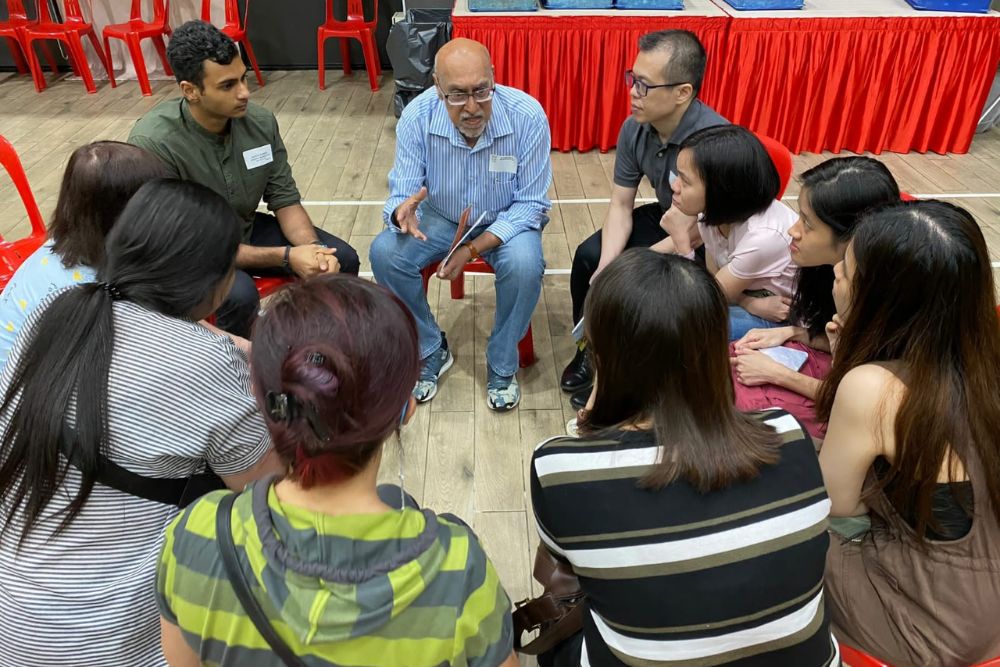
"Before you even think of volunteering, you need to make sure that you are settled. Put yourself first,"
says Dr Amir Singh, 69, a community and social services professional with two PhDs in Psychological Science and Educational Management.
It is a surprising statement from a volunteer with decades of experience in numerous organisations.
He’s worked with inmates, in the prisons; ex-offenders for the Singapore After-Care Association; new citizens and permanent residents, as an Integration and Naturalisation Champion for the People’s Association; the elderly, as a Silver Generation Ambassador for the Agency for Integrated Care; and his neighbours, volunteering for the residents’ network for Nee Soon South.
“You must be practical. Your health must be good. Your mental state must be stable. And your finances have to be okay. During a flight safety video, they always say: ‘In the case of an emergency, help yourself first before helping others.’ It is the same here.
"When you have the basics and are stable and happy with your life, then you can help others. They feel the joy on your face, the warmth when you touch their hand and connect with them,"
he says.
Play to your strengths – or passions
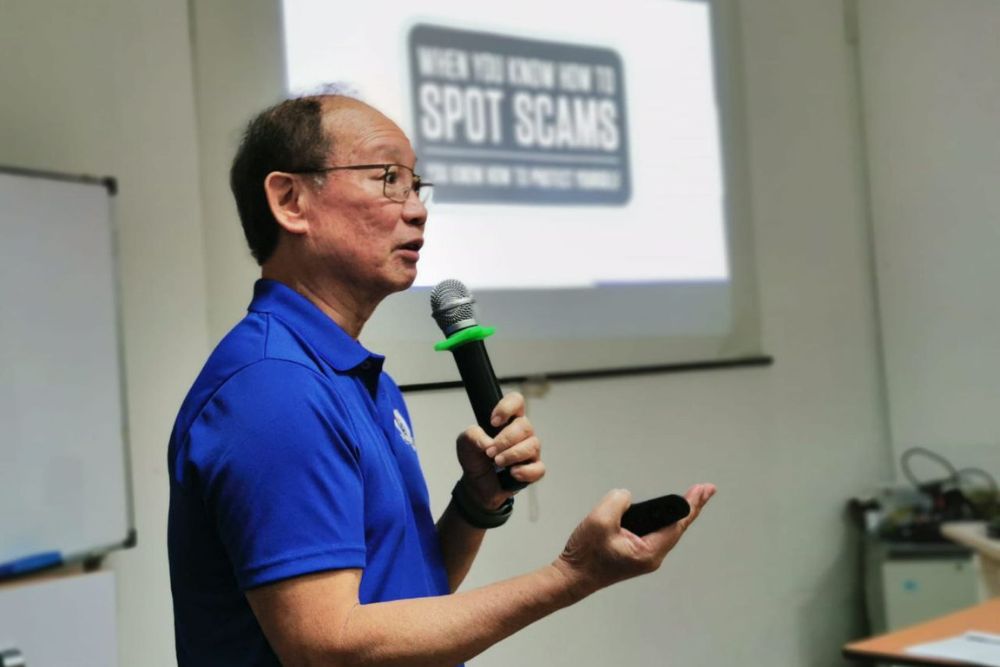
The next step in a silver’s volunteering journey, he says, is to find a position that “plays to your strengths”.
"I like to tell people: Give back in the best way that you know how. We all have skills. Volunteering doesn’t mean that you have to do something necessarily outside of your comfort zone – it could just be in a different setting,"
he says.
James Loo, 74, a senior advocate at non-profit RSVP Singapore, The Organisation of Senior Volunteers, offers a different perspective: “Find a project that you feel passionate about – something that you’d feel very committed about volunteering for.”
The semi-retired auditor is a part of RSVP’s 100-strong team of senior volunteers involved in Project PRAISE (Police-RSVP Anti-Scam Engagement), a joint effort between the Singapore Police Force and the non-profit which recently saw an updated training curriculum courtesy of Google.
The volunteer anti-scam advocate has conducted over 50 sessions for more than 4,000 seniors over the past year-and-a-half.
"It's something that I hold very close to my heart. Aside from the financial loss, the mental and emotional impact for victims of a scam is huge. It's all they can think about, even years after the incident,"
he says.
Be wary of burnout
Though volunteering can be gratifying, both silvers agree that older volunteers should still be wary of burnout.
"There’s no need to think of volunteering like a full-time job. You should be able to balance it with other commitments,"
says James, who continues to help his son run his own business while conducting scam training sessions on an ad-hoc basis.
Amir, who dedicates about “five to ten hours a week” on average to committee meetings and volunteering sessions, says, “This is what volunteering is. It means setting aside time to help others. I still have ‘me time’. That’s a thing we have to do also.”
"You can’t forget that some forms of volunteer work take a mental toll. We should have our own support system of friends to help us along too,"
he advises.
Weeding out bad eggs
But it is more than just burnout that leads to silvers leaving the volunteering ecosystem.
At times, some feel obliged to move on when faced with politicking and in-fighting.
Without naming names, Amir points to certain committees that he’s been a part of, where “members come in with agendas laid bare”.
Though such actions don’t necessarily result in positive outcomes for volunteers with ulterior motives, such scheming often leads to “good people becoming disillusioned”.
"In my experience, you can never have a purely volunteer-led committee. There has to be some sort of authority figure who has a say, whether from a board of directors or the government (in the case of government-related social agencies) to put a stop to negative things,"
he says.
Improved volunteer retention with training, nominal payment
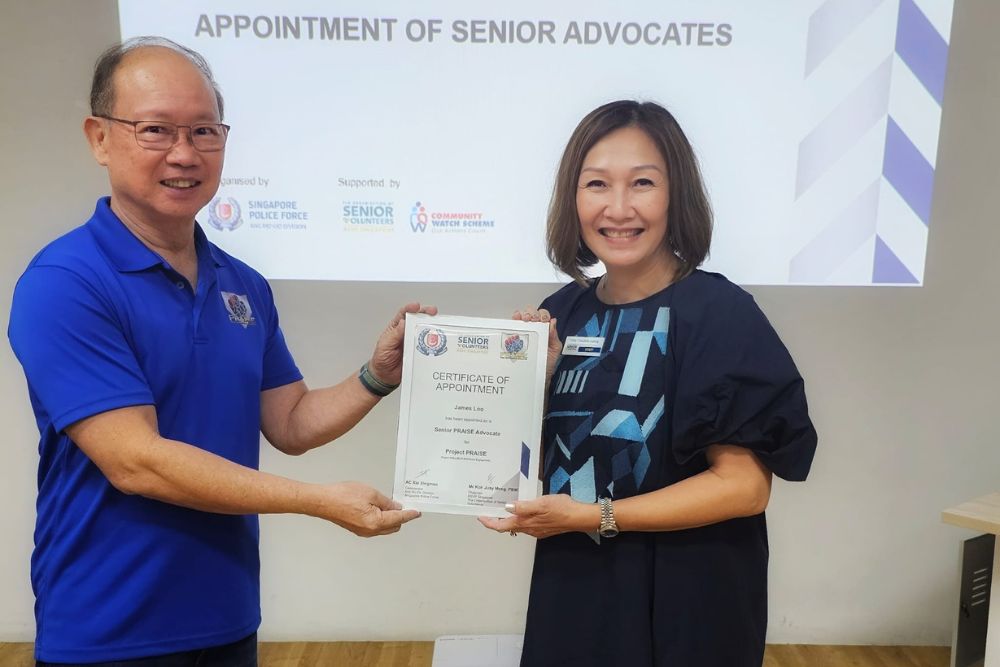
As a whole, both silvers acknowledge that the organisations they’ve volunteered with have made efforts to improve retention.
James and Amir receive nominal sums from their respective organisations for volunteering, whether that be conducting a 45-minute scam awareness workshop, or visiting an older person who is living alone (about $10 per visit, says Amir).
These sums help defray the cost of transport and time, say Amir, while providing a further form of gratification.
"Acknowledging volunteers and compensating them for their time and transport helps them to stick with it, especially if they aren’t as financially secure. The sum isn’t large enough that you can make it a full-time gig – and it shouldn’t be,"
he adds.
"And if they don’t want it, they can always donate it to charity themselves. Put the power into the hands of the volunteers."
James agrees — “this stipend shouldn’t be the thing that is attracting people” – though he goes a step further to say that the training opportunities RSVP provides are partly why it’s able to hold on to volunteers for such a long time.
"Not all of us are comfortable with giving presentations from the get-go. It is good that RSVP can upskill volunteers with presentation or befriending skills, as it gives us the confidence to go out and volunteer, while making us feel valued,"
he says.
Hope for a volunteering database
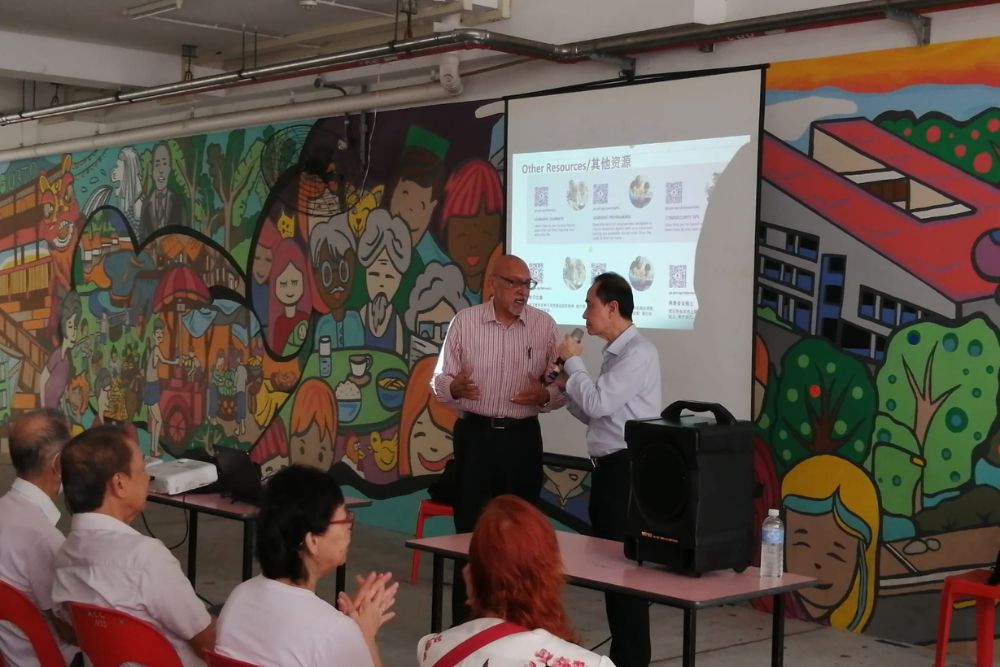
What Amir thinks would benefit the volunteering ecosystem in Singapore is a one-stop shop for volunteering, complete with a comprehensive volunteer database, where people with the skills are matched to the right jobs, along with all the relevant forms and clearances necessary to be approved as a volunteer.
"I believe that there are people out there with the knowhow and the willingness to help, who aren’t being connected to the opportunities. You can help, and they can use you. Make it easier to connect your skills to the opportunity, make it easier to volunteer, and the whole of society will benefit,"
he concludes.

